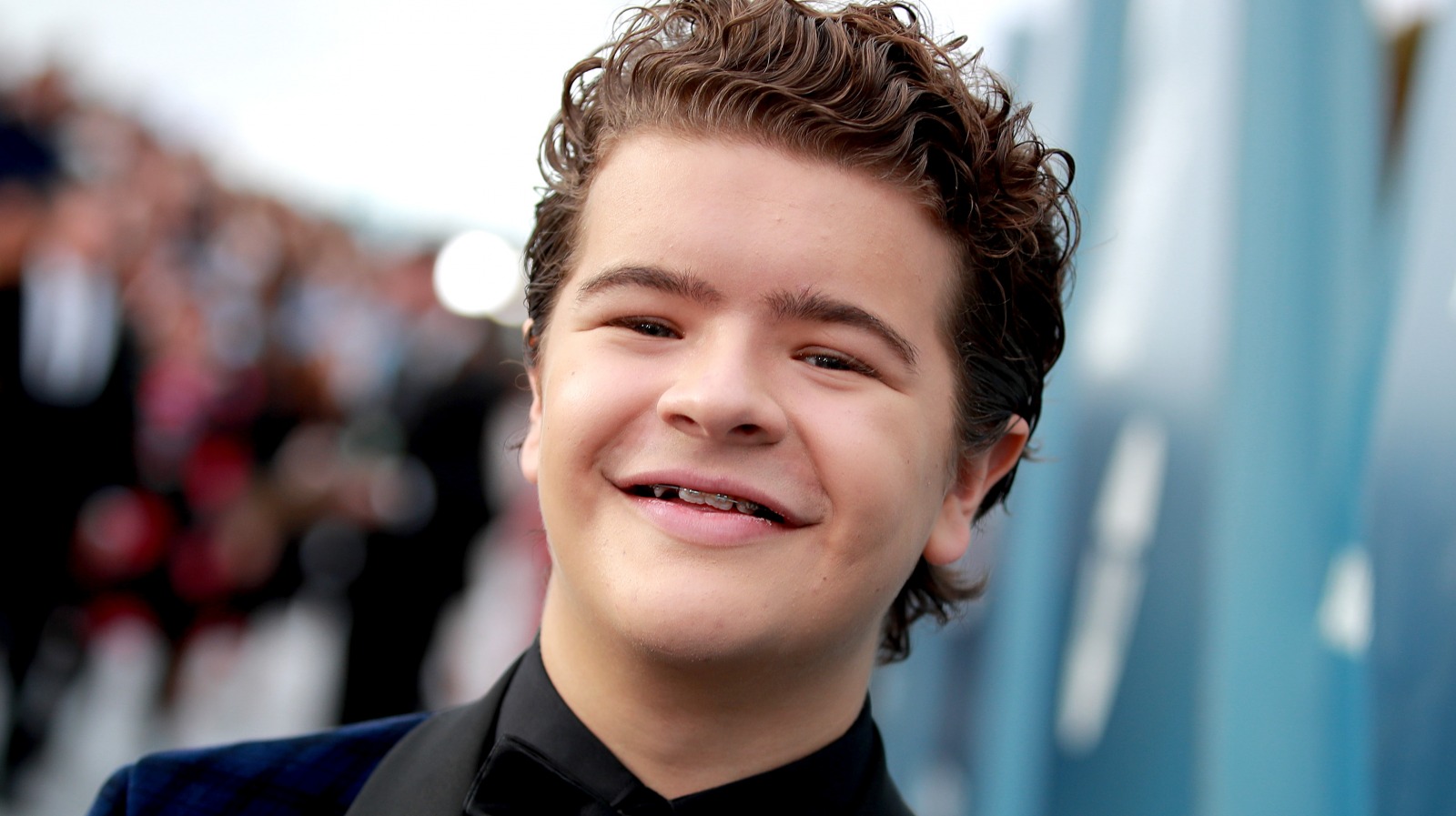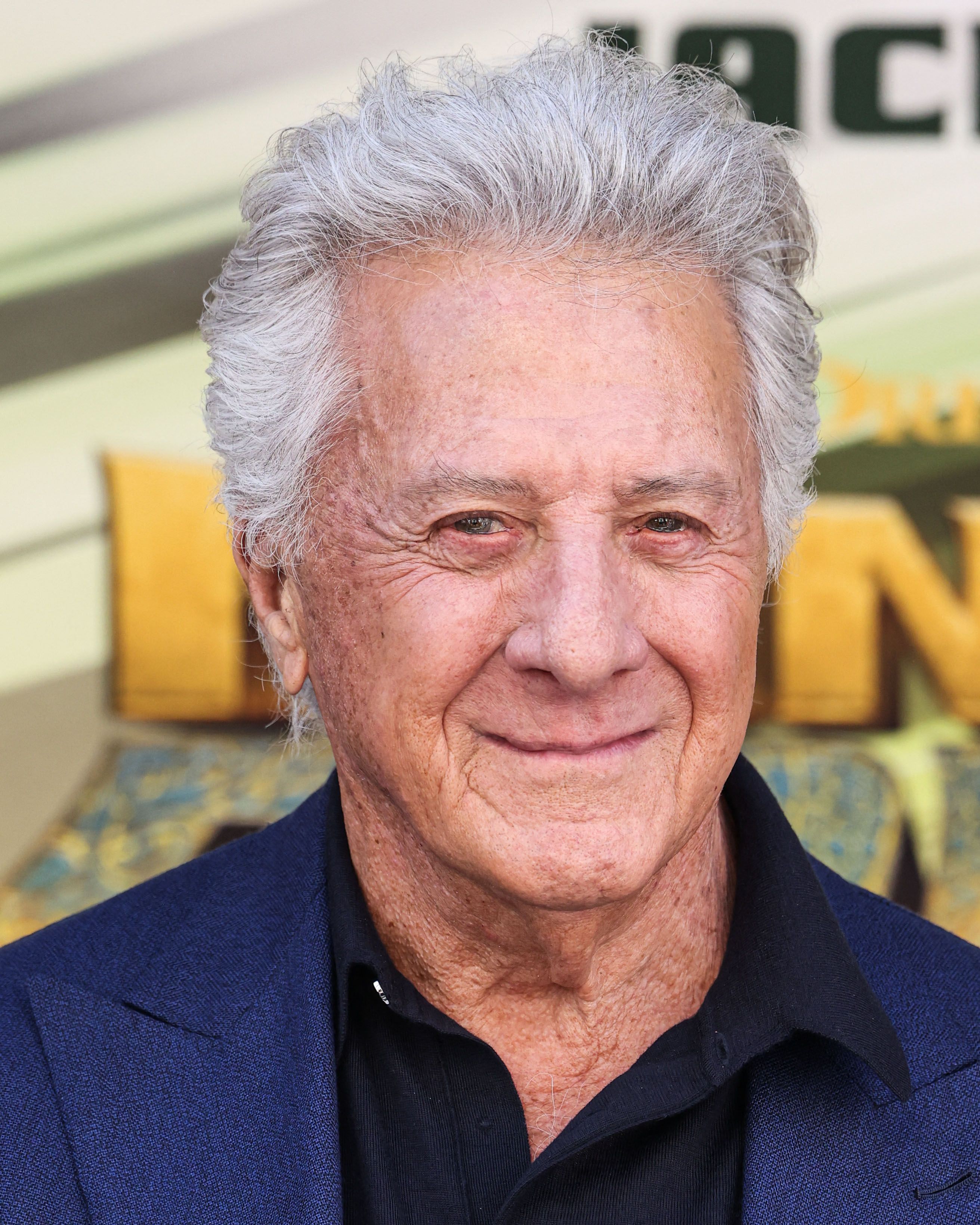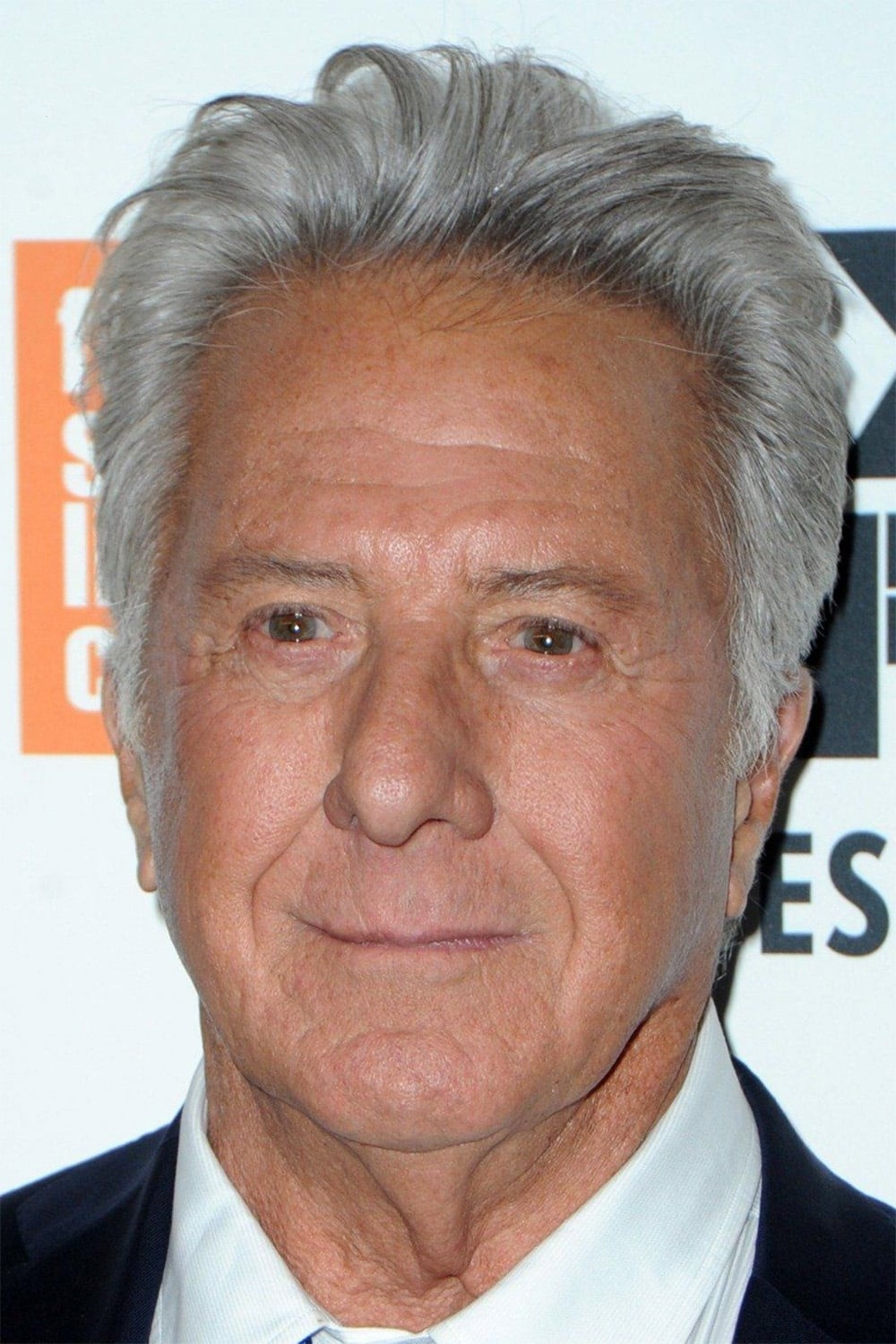Dustin Lee Hoffman: A Look At A Legendary Acting Career
Have you ever stopped to think about those performers who truly leave a mark on the silver screen? There are, you know, some individuals whose work just sticks with you, long after the credits roll. It's almost like their presence changes the very way you see stories unfold. We're talking about someone who consistently delivers performances that feel deeply real, bringing characters to life in ways that resonate with so many people.
When we talk about the history of modern cinema, one name that surely comes up is Dustin Lee Hoffman. His impact on film, particularly from the late 1960s onwards, is quite significant. He has, you might say, shaped how we think about what an actor can achieve, pushing boundaries with his roles and his unique approach to the craft.
For anyone who enjoys a good film, or perhaps even dreams of working in movies, understanding the journey and methods of a figure like Dustin Lee Hoffman can offer some valuable lessons. He really showed that a different kind of leading man could exist, someone who wasn't just about traditional good looks, but about genuine feeling and a powerful connection to the part. His career, it appears, offers a rich study for anyone curious about acting at its best.
Table of Contents
- Biography: The Early Chapters of a Performer's Life
- Personal Details and Bio Data
- Key Films: Moments That Defined a Career
- Acting Style: Getting Inside the Character
- Lasting Impact: A Legacy on Screen
- Frequently Asked Questions About Dustin Lee Hoffman
Biography: The Early Chapters of a Performer's Life
Dustin Lee Hoffman, born in Los Angeles, California, on August 8, 1937, really started his journey in a pretty humble way. He didn't, you see, just walk onto a film set and become a star overnight. His beginnings involved a lot of hard work and persistence, much like many who try to make it in the acting world. He spent years, actually, in New York City, honing his skills on stage, doing off-Broadway productions, and just trying to make ends meet.
His early experiences, which involved studying at the Pasadena Playhouse and then moving to New York, were absolutely crucial. He, you know, learned from some of the best acting teachers of the time, soaking up different methods and ideas. This period was, it seems, a foundational time for him, building the strong base he would later use for his remarkable film work. He shared apartments with other aspiring actors, like Gene Hackman and Robert Duvall, creating a kind of shared struggle that many performers can relate to.
The late 1960s brought his big break, a moment that would change everything for Dustin Lee Hoffman. It was, in fact, his role as Benjamin Braddock in "The Graduate" (1967) that launched him into the public eye. This film, a true cultural phenomenon of its time, showed his unique ability to play a character who felt a bit lost and uncertain, something many young people could connect with. It was a role that, quite frankly, defied the typical leading man image and opened doors for a new kind of Hollywood hero.
Before "The Graduate," he had, you know, taken on various small roles, sometimes struggling to find work that truly fit. His dedication during these lean years, however, paid off immensely. He was, in a way, ready for the chance when it finally arrived, equipped with a deep understanding of human behavior and a desire to bring truth to his performances. This readiness, it appears, is a common thread among those who achieve lasting success in creative fields.
His early life and struggles really shaped the kind of actor he became. He learned, for example, the value of observation and patience. These formative years, filled with auditions and small parts, built a resilience that would serve him well throughout a long and varied career. It's a reminder that even the most famous individuals often start from very ordinary places, just trying to get a foothold.
The story of his rise is, in some respects, a classic Hollywood tale of perseverance. From a struggling stage actor to a leading man, his path showed that talent, combined with an unwavering commitment, can truly open up significant opportunities. He demonstrated, too it's almost, that defying conventional expectations can sometimes be the very thing that makes an artist stand out.
Personal Details and Bio Data
Here's a quick look at some key details about Dustin Lee Hoffman:
| Detail | Information |
|---|---|
| Full Name | Dustin Lee Hoffman |
| Date of Birth | August 8, 1937 |
| Place of Birth | Los Angeles, California, USA |
| Nationality | American |
| Occupation | Actor, Director |
| Years Active | 1960s–present |
| Spouse(s) | Anne Byrne (m. 1969; div. 1980), Lisa Gottsegen (m. 1980) |
| Children | 6 |
| Notable Awards | Academy Awards, Golden Globe Awards, BAFTA Awards, Emmy Awards |
Key Films: Moments That Defined a Career
Dustin Lee Hoffman's filmography is, quite simply, full of memorable performances that span many different types of stories. He has, you see, consistently chosen roles that challenge him and allow him to explore various aspects of the human experience. His ability to transform himself for each character is something that many viewers find truly compelling.
The Graduate (1967)
As mentioned, "The Graduate" was his breakthrough. His portrayal of Benjamin Braddock, a recent college graduate feeling lost and disconnected, captured the mood of a generation. The film's blend of comedy and social commentary, with his nuanced performance at its core, made it an instant classic. It's a film that, even today, still speaks to feelings of uncertainty after big life changes.
Midnight Cowboy (1969)
Just two years later, Dustin Lee Hoffman showed a completely different side as Ratso Rizzo in "Midnight Cowboy." This role, a sickly and cynical con man, was a stark contrast to Benjamin Braddock. His performance, full of grit and a kind of desperate charm, earned him critical praise and showed his range. It was, arguably, one of his most transformative roles, proving he wasn't just a one-hit wonder.
Lenny (1974)
"Lenny" saw him take on the role of controversial comedian Lenny Bruce. This biographical film allowed Dustin Lee Hoffman to really dig deep into a complex character, exploring themes of free speech and personal struggle. His commitment to portraying Bruce's mannerisms and internal turmoil was, you know, quite remarkable. It's a performance that many consider a masterclass in biographical acting.
All the President's Men (1976)
In this political thriller, Dustin Lee Hoffman played Carl Bernstein, one of the two Washington Post reporters who uncovered the Watergate scandal. Alongside Robert Redford, he brought a sense of urgency and determination to the investigative process. The film, and his part in it, really highlighted the importance of journalism. It showed, too it's almost, his ability to excel in more restrained, yet still powerful, roles.
Kramer vs. Kramer (1979)
This powerful drama earned Dustin Lee Hoffman his first Academy Award for Best Actor. He played Ted Kramer, a father who suddenly has to take on primary care for his son after his wife leaves. His portrayal of a man learning to be a parent, full of raw emotion and vulnerability, connected deeply with audiences. It's a film that, in some respects, still resonates with families facing similar challenges.
Tootsie (1982)
Showing his comedic genius, Dustin Lee Hoffman starred as Michael Dorsey/Dorothy Michaels in "Tootsie." Playing an out-of-work actor who pretends to be a woman to get a role, he delivered a performance that was both hilarious and surprisingly touching. The film, and his dual role, explored gender roles and identity in a way that was both entertaining and thought-provoking. It’s a very funny movie, actually, that still holds up.
Rain Man (1988)
His second Academy Award came for his portrayal of Raymond Babbitt, an autistic savant, in "Rain Man." This performance was widely praised for its sensitivity and accuracy, bringing a complex character to life with great care. He spent time, you know, researching autism to make his portrayal as true as possible. The film itself, and his part in it, helped to raise awareness about autism, which was quite significant at the time.
These films, and many others, show the remarkable range of Dustin Lee Hoffman. He consistently chose projects that allowed him to stretch his abilities and tell important stories. His career, it appears, is a testament to the idea that an actor can truly disappear into a role, no matter how different it might be from the last. He has, in a way, built a career on surprising audiences with his choices.
Acting Style: Getting Inside the Character
Dustin Lee Hoffman is often associated with Method acting, a style that encourages performers to draw on their own experiences and emotions to create a realistic portrayal of a character. He, you know, really commits to understanding the inner life of the people he plays, often going to great lengths to prepare for a part. This deep commitment is something that sets him apart.
His approach involves a lot of research and immersion. For "Rain Man," for example, he spent considerable time observing individuals with autism to ensure his depiction was respectful and accurate. This dedication to authenticity is a hallmark of his work. He really tries, it seems, to live inside the character's skin, understanding their world from their perspective.
He is also known for his attention to detail, from a character's mannerisms to their vocal patterns. Every gesture, every look, every pause seems to be carefully considered, yet it never feels forced. This meticulousness, you might say, contributes to the feeling that his performances are incredibly real. He doesn't just play a role; he truly becomes the person.
Dustin Lee Hoffman's acting often involves a certain vulnerability, even in his tougher roles. He is not afraid to show a character's flaws or their struggles, which makes them more relatable to audiences. This willingness to expose the less perfect sides of humanity is, actually, a sign of a truly brave performer. He lets you see the whole person, not just a polished version.
His ability to disappear into a role, transforming his appearance and voice, is another key aspect of his style. Whether it's the nervous graduate, the streetwise hustler, or the autistic savant, he consistently reinvents himself. This capacity for change, you know, is a rare gift among performers, allowing him to take on a very wide range of parts without ever seeming repetitive.
He has, in some respects, influenced generations of actors who came after him. His emphasis on truthfulness and deep character work has become a standard for many aspiring performers. It's fair to say that his approach has helped to shape what we expect from a truly great acting performance. He showed, you see, that acting could be more than just reciting lines; it could be about embodying a whole life.
His performances are, basically, a masterclass in how to connect with an audience on an emotional level. He makes you feel what his characters feel, drawing you into their stories with a powerful sense of empathy. This emotional resonance is, perhaps, the most enduring aspect of his unique acting style. He really gets you to care, and that is a very important part of what he does.
Lasting Impact: A Legacy on Screen
The impact of Dustin Lee Hoffman on Hollywood and on the art of acting is, quite frankly, immense. He was part of a generation of actors who brought a new kind of realism to American cinema, moving away from the more glamorous, idealized figures of earlier eras. He, you know, helped to usher in a period where characters were often flawed, complex, and deeply human.
His film choices often reflected societal changes and challenged conventional norms. From questioning the American dream in "The Graduate" to exploring the complexities of divorce in "Kramer vs. Kramer," his films often tackled important social issues. He was, in a way, at the forefront of cinema that aimed to reflect the world as it truly was, not just as a fantasy.
He also helped to redefine what a leading man could look like. Before him, Hollywood often favored tall, conventionally handsome actors. Dustin Lee Hoffman, with his more everyman appearance, proved that talent and authenticity were far more important than traditional good looks. This shift, it seems, opened doors for many other talented performers who didn't fit the old mold.
His work has inspired countless actors to pursue a deeper, more committed approach to their craft. Aspiring performers often study his roles to understand how to build a character from the ground up. He is, very, a benchmark for what it means to truly inhabit a role. His influence is, you know, seen in the work of many actors today who prioritize emotional truth.
Even as of late 2023, Dustin Lee Hoffman remains a relevant figure in the entertainment world, though his output is less frequent. His past works continue to be studied and enjoyed by new generations of filmgoers. His contributions to film history are, basically, set in stone, proving his enduring appeal and artistic significance. He is, quite simply, a living legend.
The legacy of Dustin Lee Hoffman is not just about the awards he has won, or the box office success of his films. It is, more importantly, about the emotional connection he forged with audiences through his raw, honest performances. He showed, too it's almost, that acting could be a powerful tool for exploring the human condition in all its messy, wonderful complexity. His work, in some respects, truly changed the game for actors everywhere.
He has, it appears, left an indelible mark on cinema, proving that a performer's true strength comes from their ability to connect with universal human experiences. His impact is felt not just in the films he made, but in the way he inspired others to pursue authenticity in their own creative endeavors. He is, you know, a true master of his craft, and his work will continue to be appreciated for a very long time.
Frequently Asked Questions About Dustin Lee Hoffman
How many Oscars does Dustin Lee Hoffman have?
Dustin Lee Hoffman has, in fact, won two Academy Awards for Best Actor. His first win was for "Kramer vs. Kramer" in 1979, and his second was for "Rain Man" in 1988. He has also been nominated several other times, showing his consistent recognition in the industry. It's a pretty impressive record, actually, for any performer.
What is Dustin Lee Hoffman's most famous role?
While he has many memorable roles, his portrayal of Benjamin Braddock in "The Graduate" is, arguably, his most famous and iconic. It was the role that introduced him to a wide audience and defined a certain type of character for a generation. However, roles like Ratso Rizzo in "Midnight Cowboy" and Raymond Babbitt in "Rain Man" are also very well-known and widely celebrated. It just depends, you know, on who you ask.
Is Dustin Lee Hoffman still acting?
Yes, Dustin Lee Hoffman is still acting,

How Old Is Dustin From Stranger Things And Who's He Dating In Real Life?

The Point (1971) Latest News, Interviews, and More

Dustin Hoffman - Profile Images — The Movie Database (TMDB)